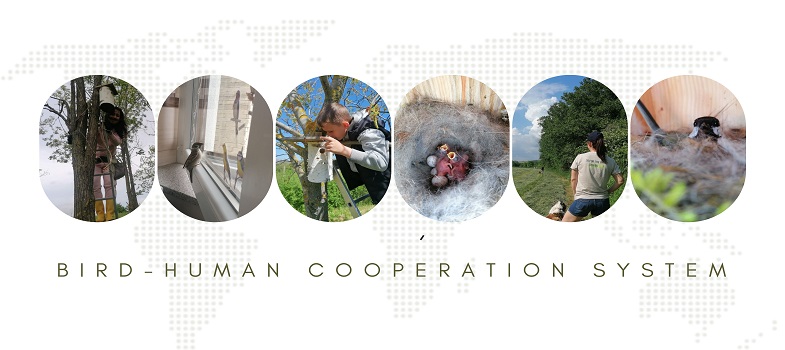The standard view of this forum does not always work well with
assistive technology. We also provide a simpler view, which still contains all features. Switch to simple view.
my garden symbiosis
I have an excellent symbiotic relationship with the birds in my garden. These feathered friends are not just beautiful to watch; they are delightful workers, each species contributing uniquely to the garden's health and vitality, creating a truly harmonious and symbiotic "win-win" situation. The benefits they provide are profound, making my organic space a vibrant testament to nature's own effective pest control and waste management.
The robin, with its iconic red breast and surprisingly bold demeanour, is perhaps the most familiar and cherished of my garden allies. Whenever I disturb the soil, a robin is invariably close by, its keen eyes fixed on my digging. I deliberately leave patches of uncovered earth for them, knowing that this simple act triggers their exceptional foraging instincts. They swiftly descend upon the newly exposed earthworms, grubs, and, crucially, the "baby" slugs and caterpillars – common garden adversaries that can decimate young plants. The robins' constant vigilance and voracious appetite for these pests significantly reduce their populations, acting as a natural, chemical-free line of defence that keeps my seedlings and leafy greens thriving. They are the vigilant guardians of the ground layer, offering continuous, organic pest management.
Next, while sometimes requiring careful management to protect delicate seedlings, the common pigeon plays a surprisingly beneficial role. Far from being just a bird feeder hog, pigeons are incredibly efficient ground-level clean-up crews. Their primary contribution lies in their relentless consumption of weed seeds. They diligently patrol the garden floor, hoovering up countless nascent seeds before they even have a chance to germinate, drastically reducing the future weed burden. This natural "vacuum cleaner" effect is invaluable, lessening my need for manual weeding and ensuring more nutrients and water are available for my desired crops. Furthermore, they help clear away discarded plant matter and fallen debris, preventing the build-up of material that could otherwise attract other less desirable pests. Their steady, methodical foraging contributes to a tidier and healthier garden environment.
The acrobatic and ceaselessly energetic tits, encompassing species like the blue tit and great tit, are genuinely among the garden's most effective pest controllers. These small powerhouses are a constant source of fascination as they flit and dart through the foliage, meticulously scouring every leaf, stem, and flower for insects. Their diet during the crucial spring and summer months is heavily focused on aphids and caterpillars – two of the most destructive pests to garden plants. A family of tits can consume thousands of these larvae and sap-sucking insects in a single day, providing an unparalleled biological defense system. Their presence dramatically reduces the need for chemical sprays, ensuring my fruit trees, vegetables, and ornamental flowers can flourish in a truly organic setting, free from debilitating infestations.
Finally, the striking blackbird, a quintessential sound of the British garden, is another invaluable ally. While their melodious song is a delight, their practical benefits are equally significant. Blackbirds are quintessential ground foragers, constantly raking through leaf litter and rummaging in the soil with their strong beaks. This activity is incredibly beneficial as it exposes hidden slugs, snails, leatherjackets (crane fly larvae), and various grubs that would otherwise feast on plant roots and foliage. Their systematic turning of the soil surface also helps with minor aeration, improving water penetration. Blackbirds are particularly effective at controlling populations of ground-dwelling pests, and their territorial nature helps establish a balanced avian presence in the garden. They are tireless workers, constantly seeking out and consuming many of the organisms that cause the most damage to emerging and established plants.
My organic garden is a testament to the power of these diverse avian contributions. It thrives as a vibrant, interconnected space where vegetables, fruits, and flowers flourish. While I occasionally use simple netting to protect the most vulnerable seedlings, my core philosophy is to actively encourage and welcome these invaluable birds. Their practical benefits in pest control, weed management, and even soil health are immense. Beyond the tangible advantages, the sheer joy of observing them, the ongoing lessons in natural ecology they provide, and the simple beauty they add to my daily life, solidify their status as the true, indispensable partners in my thriving garden. There are more birds visiting my garden, such as starlings, ravens, finches, and so on.
